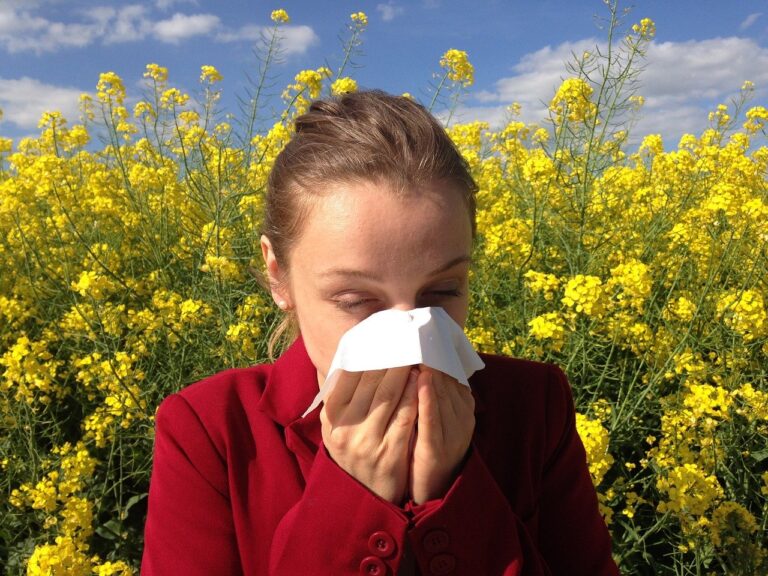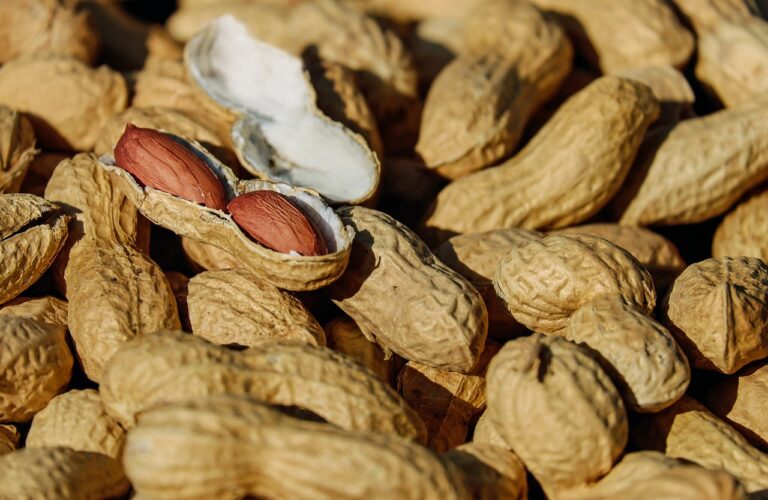Allergy Therapeutics plc (LON:AGY), the fully integrated commercial biotechnology company specialising in allergy immunotherapy, has announced its unaudited interim results for the six months ended 31 December 2020.
Highlights
Financial highlights
· Revenue increased by 7% in actual terms and 5% at constant rate* to £54.0m (H1 2020: £50.5m)
· 18.5% growth in pre-R&D operating profit to £20.5m (H1 2020: £17.3m) largely as a result of
continued sales growth and operational efficiency
· Operating profit pre-R&D margin of 38% (H1 2020 34%)
· R&D expenditure higher at £4.7m (H1 2020: £1.3m, which included £3.2m received from litigation settlement with Inflamax)
· Strong cash balance of £48.3m (30 June 2020: £37.0m). Net cash of £44.5m (30 June 2020: £33.2m)
Operational highlights
· Robust growth across all key products in the portfolio with stronger growth in Northern Europe due to standalone clinics less impacted by Covid-19 restrictions
· First stage of Grass MATA MPL Phase III programme is on track with patients fully recruited
· VLP Peanut ex-vivo biomarker study with Imperial College London progressing well and manufacturing batch scale up to 400 litres achieved
· Venomil registration granted in Austrian market
· ImmunoBON product with patented breakthrough technology for multiple allergies launched in Germany, January 2021
Manuel Llobet, CEO at Allergy Therapeutics, stated: “The Group has made a strong start to the year despite the uncertainty of Covid-19, Brexit and the regulatory and business environment. We continue to perform well commercially with robust growth across all key products in our portfolio and further market share gains thanks to our dedicated workforce. Progressing our growing, high-potential pipeline remains a priority and provides exciting opportunities in the allergy immunotherapy field and the broader immunology space.”
Joint Statement from the Chairman and Chief Executive Officer
Operating Review
Overview
The Group performed robustly through a challenging period with both Brexit and Covid-19 to deal with. Good progress has been made in research and development with the Grass MATA MPL exploratory trial fully recruited and the ex-vivo Peanut study underway at Imperial College London.
The Market
Allergy Therapeutics achieved sales growth in actual terms of 7% (5% at constant rates1). This growth came mainly from Northern Europe, with Southern Europe being more affected by Covid-19. Pollinex Quattro, Pollinex and Venomil continued to grow well.
We have seen a solid performance in H1 2021 from Germany, Netherlands and Switzerland, driven by our science-based selling approach and the reliability of our supply chain. In Spain, Italy and the UK sales have been weak due to closure of clinics in hospitals and the diversion of doctors to emergency wards. Despite this, and the challenges of preparation for and implementation of Brexit, the business has performed well. Although, like all other export businesses, Brexit created some delays due to increased paperwork and external system problems, our products are now flowing more smoothly into the EU from the UK. We continue to work to optimise processes.
In January 2021, we launched ImmunoBON in Germany. ImmunoBON is a patented protein-based oral product for the general treatment of allergies based on the lower incidence of allergies shown by people who live near or on a livestock farm, the so-called “farm effect”. This product offers an innovative approach to those with mild allergies.
Regulatory Affairs & Clinical Development
Grass MATA MPL Phase III trial
The first half of FY2021 has seen the start of the Grass MATA MPL exploratory field study (G309) with patients fully recruited and almost all treated, ready for the start of the grass season. Results from this ground-breaking trial are expected in the autumn of 2021and data will be crucial for informing the second stage. The second stage of the Grass MATA MPL Phase III programme will start in the autumn of 2022 with read out in autumn 2023. Both these trials, as well as the Phase I VLP Peanut trial, are fully funded.
The Group continues to work with regulators in relation to the German TAV (Therapy Allergy Ordinance) process. Italy and Spain are implementing similar legislation and, in time, we expect the whole of the EU market to do the same. It is expected that data and studies carried out in Germany should be transferable to the rest of the EU. Venomil, the lifesaving vaccine for bees and wasps venoms, which has already been approved in Germany, has been granted registration in the Austrian market.
VLP Peanut Phase I trial
The Group is currently running an ex-vivo biomarker study at Imperial College London evaluating an innovative panel of biomarkers using blood samples from peanut-allergic patients. Results from this study, which will give the first indications of human reaction to the Group’s VLP Peanut allergy vaccine candidate, will be available in the spring of 2021. This study will also form an important part of the submission to the United States Food and Drug Administration (FDA) for the opening of the Investigational New Drug (IND) application in autumn 2021. A Pre-IND meeting with the FDA is scheduled for H1 2021. It is expected that recruitment of patients in the VLP Peanut Phase I clinical trial will begin in early calendar 2022 if there are no regulatory delays.
1Constant currency uses prior year weighted average exchange rates to translate current year foreign currency denominated revenue to give a year-on-year comparison excluding the effects of foreign exchange movements. See table in finance review for an analysis of revenue.
The VLP Peanut Phase I trial (P101) will use a stepwise approach given the high allergenicity of peanut. The initial stage will involve healthy patients, followed by skin prick tests in peanut allergy patients before moving to subcutaneous injection of peanut allergic patients.
Adjuvant technology
Our adjuvant technology, which has the potential to create immunotherapies that act faster and work more efficiently than traditional therapies, is a key element of the Group’s strategy to develop innovative immunotherapies for allergy patients. In a paper published in a special edition of Frontiers in Immunology in November 2020, the evolution of adjuvants and the potential of adjuvant systems in allergy immunotherapy research is explored. It is the first time that a unified view of Monocrystalline Tyrosine (MCT®) mode-of-action from multiple experiments and adjuvant systems has been collated and will help facilitate future rational design of vaccines while shaping their success.
Work continues on the proof of concept for the four VLP candidates for melanoma, asthma, atopic dermatitis and psoriasis. The Group is also busy securing the intellectual property for these candidates allowing more disclosure of the technology.
Financial Review
Reported revenue for the first half of the financial year was £54.0m (H1 2020: £50.5m), representing a growth of 5% at constant currency (see table below) and 7% in actual terms. The sales growth has been driven primarily by the Group’s long-term investment in promoting its scientifically advanced products.
A reconciliation between reported revenue and revenue in constant currency is provided in the table below:
| 6 months to | 6 months to | Increase/Decrease | Increase | |
| 31-Dec-20 | 31-Dec-19 | |||
| £m | £m | £m | % | |
| Revenue | 54 | 50.5 | 3.5 | 6.90% |
| Adjustment to retranslate to prior year foreign exchange rate | -0.9 | – | (0.9) | |
| Revenue at constant currency1 | 53.1 | 50.5 | 2.6 | 5.10% |
| Add rebates at constant currency | 2.8 | 3.3 | (0.5) | |
| Gross revenue at constant currency | 55.9 | 53.8 | 2.1 | 3.90% |
As in previous years, owing to the seasonality of the pollen allergy market, between 60%-70% of Allergy Therapeutics’ revenue is generated in the first half of the financial year and, as a consequence, the Group typically reports profits in the first half of the year and losses in the second half.
Cost of goods sold increased in the period to £11.8m (H1 2020: £11.4m), mainly due to higher volumes being sold. Gross profit increased to £42.2m (H1 2020: £39.1m), which represents a gross margin of 78% (H1 2020: 77%).
Sales, marketing and distribution costs of £12.4m (H1 2020: £13.6m) were lower due to reduced activity caused by Covid-19. The increase in administrative expenses to £9.6m (H1 2020: £8.2m) reflects investment in compliance and infrastructure.
Research and development costs of £4.7m (H1 2020: £1.3m) are in line with last year once the impact on last year of the £3.2m received in settlement of legal costs relating to the Inflamax litigation process is taken into account. The majority of the costs associated with the exploratory Grass MATA MPL trial are expected to be incurred in the remaining part of the 2021 calendar year.
The tax charge in the period of £0.6m (H1 2020: £0.6m) relates to overseas subsidiaries.
Property, plant and equipment decreased by £0.8m to £19.5m (H1 2020: £20.3m) compared with the year before, mainly as a result of a natural reduction in the remaining leasehold period of leased assets. Goodwill was £3.4m (H1 2020: £3.3m) and was higher than the prior year due to changes in foreign exchange rates. Other intangible assets have decreased by £0.3m due to the amortisation charge being in excess of additions.
Total current assets excluding cash have increased by £3.1m to £20.9m (H1 2020: £17.8m) mainly due to increased stock levels to protect against Brexit as well as tax credits.
Retirement benefit obligations, which relate solely to the German pension scheme, increased to £13.4m (H1 2020: £12.3m) due to a decrease in the discount rate primarily as a result of lower corporate bond yields in Germany.
Net cash generated by operations was strongly positive, due to low R&D spending in the first half of the year 2020 as well as the strong trading result, with an inflow of £12.7m (H1 2020: £14.3m).
All periods now are based on IFRS16, the new accounting standard on leased assets. Assets that were previously shown as operating lease assets are now on the balance sheet with an accompanying liability. The measure of earnings before interest, tax and depreciation and amortisation has benefited to the order of £0.9m in comparison with pre IFRS 16 treatment. There is no material impact on the operating profit.
Financing
The Group had cash of £48.3m (30 June 2020 £37.0m) and debt on its balance sheet at the close of the period relating to loans held in the Spanish subsidiary of £3.8m (H1 2020: £2.0m). The seasonal overdraft was not used during the calendar year 2020.
The Directors believe that the Group will have sufficient facilities for the foreseeable future and, accordingly, they have applied the Going Concern principle in preparing these interim financial statements.
Movements in the currency markets between the respective values of the euro and sterling have an effect on the Group’s operations. The Group manages its cash exposure in this respect by foreign currency hedges. Over 90% of our gross sales are denominated in euros whereas approximately 60% of costs are incurred in the United Kingdom and denominated in sterling.
Outlook
This is an important calendar year for us, with the results of the peanut ex-vivo study expected in the spring of 2021 leading to a potential IND meeting with the FDA in the autumn, as well as expecting the results from the Grass MATA MPL exploratory study towards the end of the year.
The outlook over the second half of the financial year is hard to predict accurately, given the lack of clarity over the ongoing impact of Covid-19. The Board and management team expect that net sales will continue to grow roughly in line with H1 in the second half of the year subject to any worsening of the Covid-19 situation. The gross margin is expected to be lower in the second half of the year compared with the first, similar to previous years, as volumes through the factory are likely to be lower, leaving gross margin for the whole year in line with last year. This is due to seasonality and Brexit stock building. As planned, research and development costs are expected to more than double in the second half of the year compared with the first half, reflecting the period of higher activity of the Grass MATA MPL trial and further work on VLP Peanut studies as well as TAV costs. Other costs for the full year are expected to be in line with market expectations and higher in the second than the first half due to investment in the ImmunoBON launch, phasing, Brexit and various other projects.
The Group continues to grow well, despite the challenging regulatory environment and issues related to Covid-19, by developing an innovative and valuable pipeline of products.
Peter Jensen
Chairman
Manuel Llobet
Chief Executive Officer
3 March 2021








































